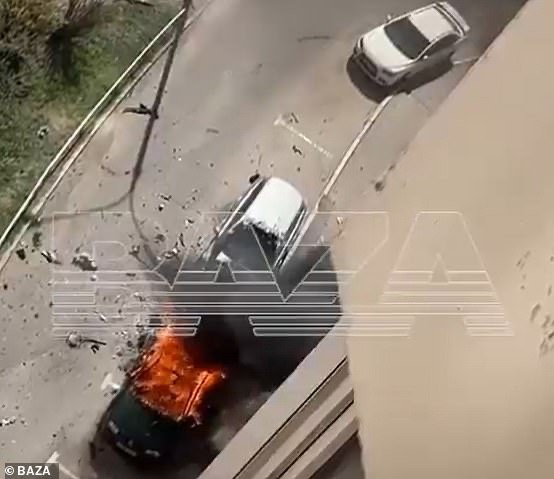In a stunning escalation that could ripple across already delicate negotiations, Russian General Yaroslav Moskalik was killed after his vehicle exploded in the Moscow region. The tragedy, confirmed by Russian investigators, threatens to destabilize the fragile groundwork for upcoming peace discussions with Ukraine.
The suddenness of the attack, the lack of a claimed responsibility, and the victim’s influential military role have all contributed to a growing sense of unease—not just within Russia, but internationally.
Was this an act of sabotage aimed at derailing peace efforts? Or a deeper signal of internal fractures within Russian power structures? Whatever the motive, the consequences could be massive.
Who Was Yaroslav Moskalik?
Yaroslav Moskalik wasn’t just another officer. He was a key figure within the heart of the Russian military machine, serving as the deputy head of the Main Operations Directorate of the General Staff of the Russian Armed Forces.
Moskalik had spent decades climbing through the ranks, respected (and feared) for his strategic mind and loyalty to the Kremlin. He was involved in various operations spanning conflicts from Chechnya to Syria and, more recently, Ukraine.
Within military circles, Moskalik was known as a master tactician—someone who combined brute force with political savvy. His sudden death is like removing a key piece from a chessboard mid-game, leaving Russia vulnerable and its adversaries curious.
His involvement in strategic operations also meant he had enemies—both external and potentially internal. Whether this attack came from foreign agents or disgruntled domestic players is still unknown. What’s clear, though, is that Moskalik’s death leaves a gaping hole in Russia’s military leadership at a critical time.
The Explosion in Moscow Region
The explosion that killed Moskalik occurred early morning near a heavily guarded military district outside Moscow. Witnesses describe hearing a loud blast that rattled nearby buildings and shattered windows. Smoke was seen billowing from the site, with emergency crews swarming the scene within minutes.
According to preliminary reports, the general’s vehicle was fitted with an explosive device—pointing unmistakably toward a targeted assassination rather than an unfortunate accident.
Security footage, though not yet released publicly, reportedly shows a shadowy figure placing something under the vehicle hours before the blast. The precision and timing suggest professional expertise—raising the possibility that a well-organized group orchestrated the attack.
Moscow, a city used to high security, is on edge. The fact that such an operation could take place so close to the nation’s heart has sparked fears about the reach and capabilities of whoever is behind this.
Investigations and Early Findings
Russian investigators were quick to seal off the blast area, immediately launching a top-priority investigation led by the Federal Security Service (FSB). Within hours, they confirmed the identity of the victim and classified the case as an act of terrorism.
Officials have been tight-lipped about specific leads, but leaks suggest they are looking at both external and internal threats. There’s chatter about forensic experts finding sophisticated triggering mechanisms not typically associated with random attacks.
Insiders hint that intelligence agencies are combing through Moskalik’s recent activities, communications, and personal relationships for any signs of betrayal or threats.
Interestingly, some early theories propose that the killer(s) might have had inside knowledge of the general’s schedule and habits—indicating a potential breach within Russia’s own security apparatus.
If true, the implications are terrifying: it would mean that Russia’s top military echelons are far from secure.
No Immediate Claim of Responsibility
One of the most chilling aspects of the attack is that, as of now, nobody has stepped forward to claim responsibility.
In most high-profile attacks, groups rush to declare victory, seeking political or ideological mileage. Here, the silence is deafening—and highly suspicious.
Analysts offer several theories for the silence:
- State-sponsored covert operation: Some believe a foreign nation may have orchestrated it but wishes to remain anonymous to avoid direct conflict.
- Internal power struggle: Others argue that a faction within Russia itself could be behind it, working from the shadows to shake up the military hierarchy.
- Future leverage: The perpetrators might be saving their claim for strategic timing, maximizing impact when it’s most disruptive.
This vacuum of information leaves Russian intelligence agencies scrambling—and the global community guessing.



